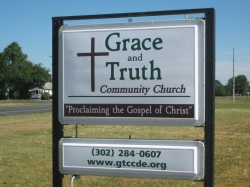What words should we use to talk about God? What words can we use to talk about God? There is a teaching that persistently resurfaces throughout church history that says Christians should not use words that are not found in Scripture when we are expressing Christian doctrine. Those who hold this position say that we should only affirm what the specific words of Scripture say and that we should go no further than that. In practice, those who hold this view are highly skeptical of a well-developed theology.
This theological skepticism can happen at both the micro and macro level. On the micro level, words such as “Trinity” are often rejected because they cannot be found in Scripture. This extra-biblical terminology is considered an innovation of man and therefore not a true or biblical way of stating doctrine. They say they are not interested in using words that are not found in Scripture because they are merely “human” words and cannot convey the same truth that the inspired words of Scripture do.
On the macro level, historic creeds and confessions are often rejected. The practice of adhering to a formal creed or confession (i.e. “confessional subscription”) is viewed negatively as though it meant a person had abandoned pure biblical Christianity. This perspective has a high degree of skepticism that it is even possible to formulate a well-developed system of doctrine that is actually correct. Those who hold this view, then, will often eschew creeds as necessarily unhelpful products of man’s fallible thinking. The saying, “The Bible is my creed and that is all I need,” is one example of this perspective that is common in some circles.
Let me first say that, on one hand, I am cautiously sympathetic toward those who hold this kind of thought. In one sense, it sounds genuinely devout. What Christian doesn’t want to affirm the inspired words of God in a special way? After all, the Scripture is uniquely inspired whereas our teaching and writing today is not. Furthermore, Scripture is uniquely authoritative in a way that a creed or confession could never be. So my concern here should not be understood to diminish a high view of Scripture I have continually expressed in various ways elsewhere (for instance here, here and here). Yet, on the other hand, we must go beyond this and ask the question, is it right to insist that only biblical terms can, or should, be used in expressing the Church’s doctrine? Is it wise? Is it pleasing to God?
It seems to me that the answer to the above questions has to be no, for a wide range of reasons. This errant perspective has been around for a long time, however, and because I have come across some enthusiastic proponents of it in recent days I plan to address it here in a series of posts. Some of the readers of this blog may never have heard of this teaching. Others are well-acquainted with it. I hope that this will assist all in thinking through the task of doing and living theology in the Christian life and in the church. Over a series of posts, I will argue that the view that says ‘Christians should only use the actual words of Scripture to express Christian doctrine’ is wrong because it is (1) logically incoherent, (2) biblically untenable, (3) pastorally unfaithful, and (4) historically suspect.





















